- Berkeley City College (BCC), an innovative and caring learning community. We are deeply committed to sustaining our student-centered learning environment, as we continue to foster partnerships with our community’s business, educational, civic, and nonprofit organizations. We take pride in programs that address the needs and learning styles of all students, and which help contribute to underrepresented populations’ success in college. BCC will provide you with a unique, dynamic and rewarding learning environment. Our students, faculty and staff reflect the ethnic and economic diversity of our community and, from a broader perspective, that of California’s community colleges. You can choose from majors in a variety of areas, including American Sign Language, Accounting, Art, Biotechnology, Business Administration, Computer Information Systems, English, Global Studies, Office Technology, Liberal Arts, Multimedia Arts, Psychology, Public and Human Services, Sociology, Spanish and Spanish Medical Interpreting. Internships in the sciences and community service opportunities will enhance your education. All prepare you for employment, improve your skills or allow you to continue your education at a four-year institution.
School Highlights
Berkeley City College serves 10,471 students (12% of students are full-time).
Minority enrollment is 79% of the student body (majority Hispanic and Asian), which is more than the state average of 77%.
Quick Stats (2025)
- Enrollment: 10,471 students
- In-state tuition: $1,144
- Out-state tuition: $6,256
- Minority enrollment: 79%
- Source: Integrated Postsecondary Education Data System (IPEDS)
Top Rankings
Berkeley City College ranks among the top 20% of public schools in California for:
Category
Attribute
Diversity
School Overview
The teacher population of 186 teachers has stayed relatively flat over five years.
Berkeley City College
(CA) Community College Avg.
Carnegie Classification
Associate's Colleges: High Transfer-High Nontraditional
Baccalaureate/Associate's Colleges: Associate's Dominant
Institution Level
At least 2 but less than 4 years
At least 2 but less than 4 years
Institution Control
Public
Public
Total Faculty
186 staff
294 staff
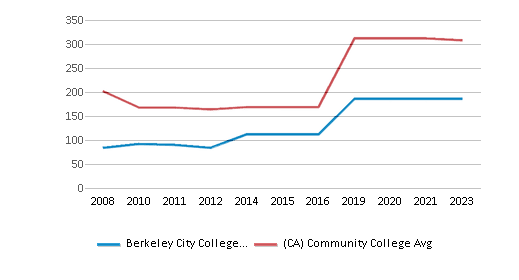
Student Body
The student population of Berkeley City College has grown by 85% over five years.
The Berkeley City College diversity score of 0.79 is more than the state average of 0.70. The school's diversity has stayed relatively flat over five years.
Total Enrollment
10,471 students
2,311 students
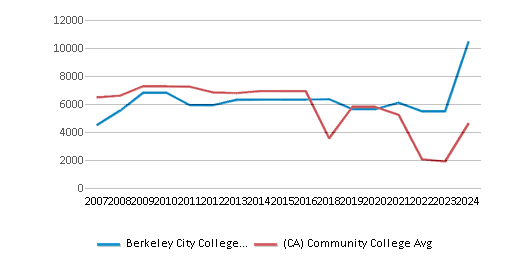
Student : Teacher Ratio
56:1
32:1
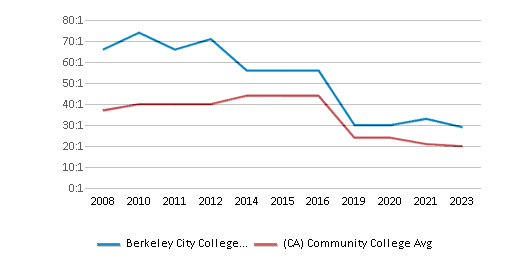
# Full-Time Students
1,250 students
1,232 students
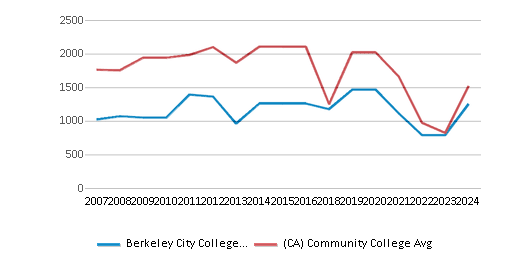
# Part-Time Students
9,221 students
8,299 students
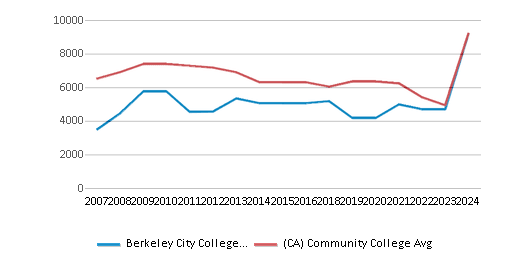
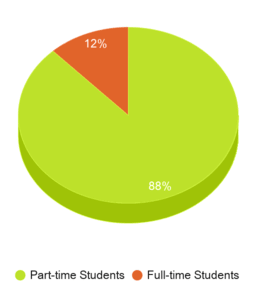
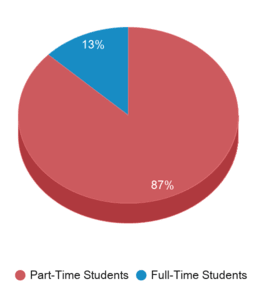
# Enrollment Undergraduate
104 students
240 students
# Full-Time Undergraduate Students
1,250 students
1,155 students
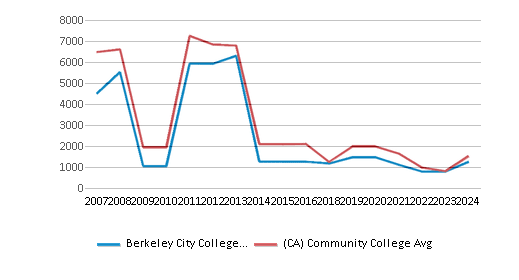
# Full-Time Graduate Students
n/a
63 students
# Part-Time Undergraduate Students
9,221 students
8,457 students
# Part-Time Graduate Students
n/a
10 students
Total Dormitory Capacity
n/a
140 students
% American Indian/Alaskan
n/a
n/a
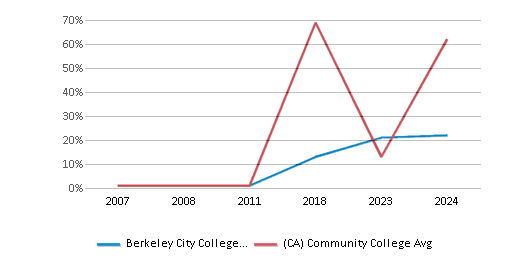
% Asian
19%
13%
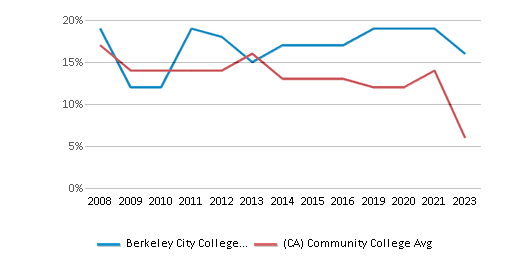
% Hispanic
30%
47%
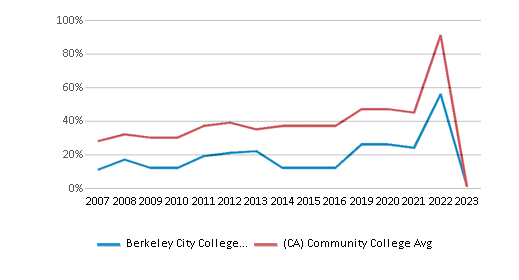
% Black
17%
7%
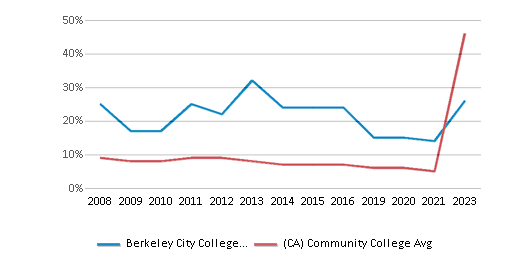
% White
21%
23%
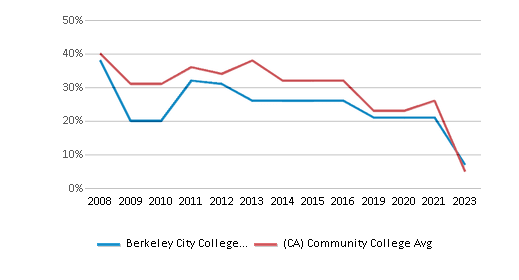
% Hawaiian
n/a
1%
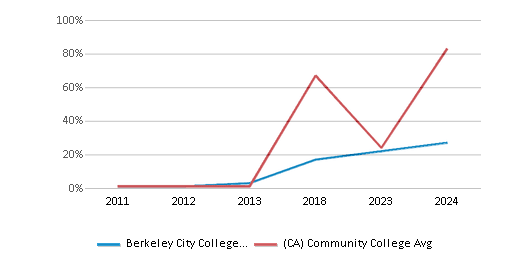
% Two or more races
8%
5%
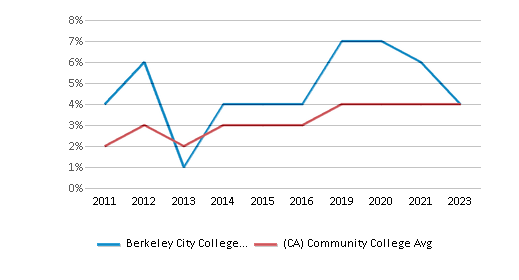
% Non Resident races
2%
1%
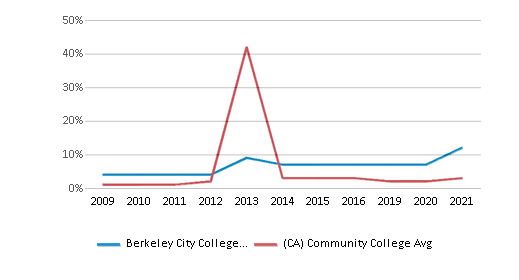
% Unknown races
4%
3%
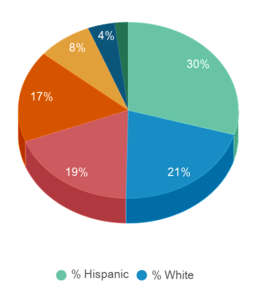
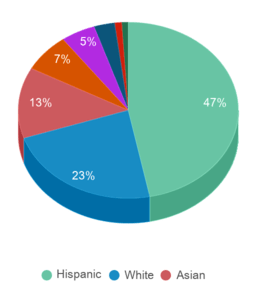
Diversity Score
0.79
0.70
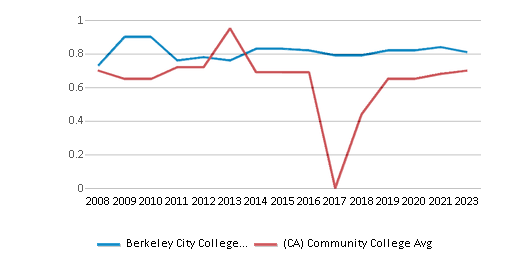
College Completion Rate (Students who graduate in less than 4 years)
0.4164%
0.4221%
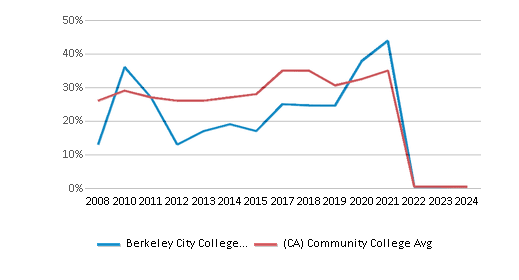
College Completion Rate (Students who graduate in 4 years or more than 4 years)
n/a
0.4304%
Average Graduate Earnings (10 Years)
$36,100
$34,700
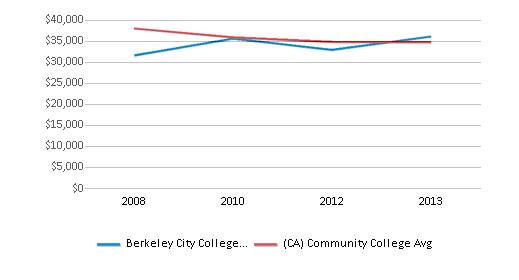
Tuition and Acceptance Rate
The public in-state tuition of $1,144 is less than the state average of $1,236. The in-state tuition has stayed relatively flat over four years.
The public out-state tuition of $6,256 is less than the state average of $6,547. The out-state tuition has declined by 16% over four years.
In-State Tuition Fees
$1,144
$1,236
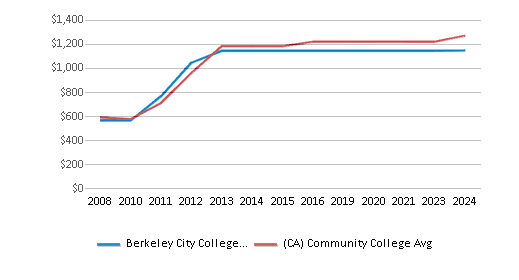
Out-State Tuition Fees
$6,256
$6,547
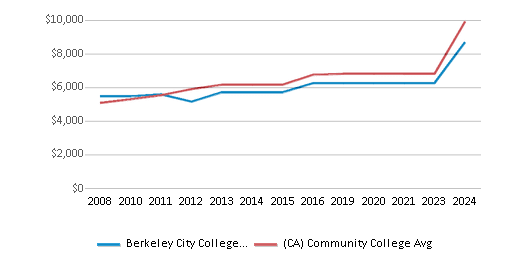
% Students Receiving Some Financial Aid
60%
85%
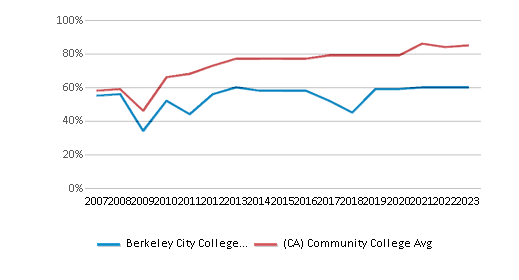
Median Debt for Graduates
$8,675
$10,063
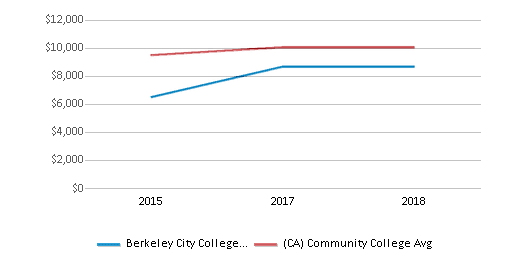
Median Debt for Dropouts
$9,000
$6,239
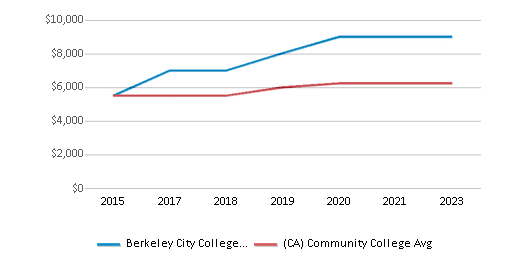
Acceptance Rate
n/a
92%
Source: 2024 (or latest year available) Integrated Postsecondary Education Data System (IPEDS)
School Notes
- Vista is a premier, diverse student-centered learning community, dedicated to academic excellence, collaboration, innovation, and transformation. Vista, one of California's 107 community colleges, is located at 2020 Milvia Street in downtown Berkeley, in one of the world's great education centers. It is only two blocks from the University of California at Berkeley. Model Programs in American Sign Language, biotechnology, business, computer information systems, the liberal arts and social sciences, place Vista on the cutting edge of community college education in California. Classes convene at the college's urban setting in downtown Berkeley and at the University of California. Vista Community College offers a wide variety of financial aid programs and services to help you meet your educational costs. The college participates in the Federal Pell Grant Program, the Federal Supplemental Education Opportunity Grant Program (SEOG), the Federal College-Work Study Program, and the Board of Governors Waiver Program (BOGEFW). Vista Community College is accredited by the Accrediting Commission for Community and Junior Colleges of the Western Association of Schools and Colleges.
Frequently Asked Questions
How much does Berkeley City College cost?
Berkeley City College's tuition is approximately $1,144 for In-State students and $6,256 for Out-State students.
What is Berkeley City College's ranking?
Berkeley City College ranks among the top 20% of community college in California for: Diversity in US community colleges.
In what neighborhood is Berkeley City College located?
Berkeley City College is located in the Downtown Berkeley neighborhood of Berkeley, CA.
Recent Articles

Obtaining Your Bachelor's Degree at a Community College
Explore the evolving landscape of community colleges offering bachelor's degrees, addressing affordability, accessibility, and workforce needs.

A to Z of Community College Certificates and Courses
From business and healthcare to technology and skilled trades, the article showcases the breadth of options available to students seeking to enhance their knowledge, develop new skills, or pursue career advancement.

What is a Community College?
This comprehensive guide explains what a community college is, its history, and its role in higher education. It covers the types of programs offered, differences from four-year colleges, benefits of attending, and important considerations for prospective students, providing valuable insights for those exploring educational options.









